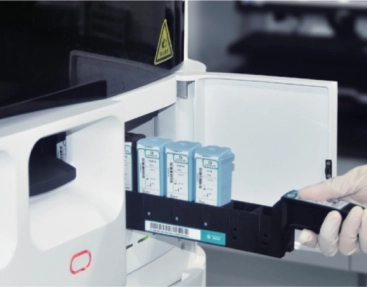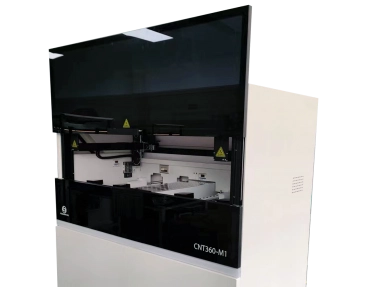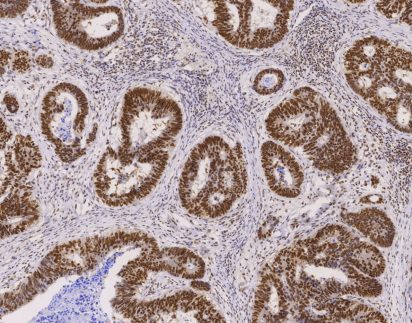Why Automated Slide Stainers Are Essential for High-Throughput Research
2025-03-27
By admin
In today’s vibrant research setting, laboratories face intense demands to generate precise, dependable outcomes swiftly and on a grand scale. Here’s where automated slide stainers for high-throughput research step in—innovative devices that enhance processes and lift productivity. Whether you’re exploring cancer genetics, pushing forward pharmaceutical breakthroughs, or managing extensive tissue studies, these tools have evolved from optional extras to vital necessities. This article examines why mechanization is crucial, details its remarkable advantages, and showcases how Celnovte can advance your facility’s potential.
Introduction to Automated Slide Stainers
Automated slide stainers are transforming lab work by swapping arduous hand-staining with sophisticated, accuracy-focused technology. Built to tackle hefty sample loads, they provide steady results at impressive speeds—essential for intensive research. From cellular pathology to genetic exploration, automated slide stainers for high-throughput research equip facilities to reach bold targets without losing excellence or correctness.
The Role of Automated Slide Stainers in High-Throughput Research
What Are Automated Slide Stainers?
Automated slide stainers are intricate machines crafted to apply colors, antibodies, or chemicals to specimen samples on slides with little human effort. They boast adjustable settings. Thus, they accommodate a broad array of staining methods, such as immunohistochemistry (IHC), in situ hybridization (ISH), and hematoxylin and eosin (H&E) staining. For teams handling high-volume tasks—like evaluating thousands of tissue pieces—they’re priceless supporters, guaranteeing exactness and dependability in every cycle.
Why High-Throughput Research Demands Automation
High-throughput research frequently involves managing hundreds or even thousands of slides each day. Manual staining can’t match this pace efficiently. It’s sluggish and susceptible to inconsistencies, like patchy dye spread. Plus, it requires considerable staff effort. On the other hand, automation keeps up with the brisk tempo of contemporary science. It offers expandability and swiftness. By relieving scientists from monotonous chores, automated slide stainers for high-throughput research let teams focus on evaluating and understanding data. They underpin today’s information-rich investigations.
For instance, a team examining widespread disease trends might need to assess 1,000 slides weekly. Manual approaches could drag on for weeks. However, an automated stainer finishes the job in days—or even hours—while maintaining uniformity.
Key Advantages of Automated Slide Stainers
Enhanced Precision and Reproducibility
In science, steadiness is paramount. Automated stainers remove the unpredictability tied to hand-done methods, such as irregular chemical application or timing errors. Each slide gets the same handling. This ensures repeatable outcomes—a necessity for confirming discoveries in broad experiments. Whether you’re charting protein presence in tumor samples or testing substances for drug effectiveness, this exactness fosters confidence in your findings.
Scalability for Large Studies
When your facility must handle 500 slides daily, expandability turns vital. Automated slide stainers for high-throughput research meet this need seamlessly. Consider the CNT-480 stainer. It’s designed for huge tasks, ideal for multi-location trials, community genetics, or wide-ranging pathology projects. Mechanization ensures your team can manage rising workloads without extra personnel or time.
Time and Cost Efficiency
Mechanization slashes staining duration sharply—up to 70% quicker than hand methods. A slide that takes 15 minutes manually can be colored in just 2 minutes with an automated setup. Beyond pace, these tools cut down on chemical waste. They also lower staff expenses by needing less supervision. Over time, the benefits pile up: greater yield with fewer inputs.
Here’s a brief overview:
|
Feature |
Manual Staining |
Automated Staining |
|
Time per Slide |
10-15 minutes |
2-5 minutes |
|
Mistake Rate |
5-10% |
<1% |
|
Daily Output |
20-50 slides |
100-500+ slides |
|
Staff Expense |
High (worker hours) |
Low (little monitoring) |
Flexibility in Staining Protocols
Science varies widely, and so do automated stainers. They adapt from basic H&E coloring to detailed multiplex IHC tasks. Take the CNT330 Full-Automatic Multiplex IHC Stainer. It provides adjustable routines. This lets teams customize staining for particular antibodies or study plans. Such adaptability aids varied fields, from brain research to cancer studies.
Choosing the Right Automated Slide Stainer
Critical Features to Prioritize
Selecting the best stainer depends on your lab’s specific goals. Here are crucial aspects to evaluate:
Output Capacity: Smaller teams might choose 100 slides/day. Meanwhile, high-volume projects need 500 slides/day versions.
Chemical Fit: Verify the device works with organic solvents, unique dyes, or special agents your work demands.
System Compatibility: Seek features like LIMS linkage or digital pathology syncing. For example, Celnovte’s cloud tools simplify data handling and review.
Also, think about your lab’s future growth. Choosing a slightly larger model now might prevent upgrades later.
Common Pitfalls to Avoid
Steer clear of these oversights to keep things running smoothly:
Upkeep Demands: Daily cleaning rounds (5-10 minutes) are critical. Skipping them risks blockages or uneven coloring.
Service Shortfalls: Downtime can halt science. So, favor suppliers with strong after-sale help. Without it, fixing issues gets tough.
Celnovte: Your Partner for Reliable Automated Slide Stainers
Why Laboratories Trust Celnovte
Celnovte isn’t merely a vendor—it’s a scientific teammate. Their ISO 13485-certified production guarantees finely crafted stainers trusted globally. Standout features include:
Celnovte HT-500: Manages 500 slides/day with 12 chemical stations for peak output.
Cloud-Based Tools: Remote oversight and routine updates boost ease of use.
Worldwide Help: 24/7 support and onsite guidance reduce interruptions.
Check out their full range at Celnovte’s homepage.
Celnovte as a Primary Antibody Supplier
Celnovte’s skills go beyond stainers to primary antibodies. Their vast collection—born from thorough development and checked for precision—offers hundreds of antibodies suited for IHC and ISH. Paired with their stainers, these ensure complete trustworthiness. See their antibody lineup here.
Success Story
A genetics team using the CNT360 Full-Automatic IHC/ISH Stainer in its CRISPR confirmation process saw striking gains. Coloring mistakes dropped by 90%. What once took weeks finished in days. This real success highlights Celnovte’s influence on high-throughput science.
FAQs About Automated Slide Stainers
Q1: How Long Does It Take to Validate a New Staining Protocol on an Automated Stainer?
A1: Validation often lasts 1-3 days, based on routine intricacy. Most devices permit small-batch trials to tweak settings before full runs. This saves effort and materials.
Q2: Can Automated Stainers Handle Fragile or Rare Samples?
A2: Yes, current models include flexible speeds and soft handling options. These protect delicate or scarce tissues, ensuring top-notch coloring without harm.
Q3: What Maintenance Is Required for Automated Slide Stainers?
A3: Daily cleaning (5-10 minutes) stops chemical buildup. Also, monthly or quarterly tuning keeps accuracy high. Always stick to the maker’s upkeep plan.
Q4: Are Automated Stainers Cost-Effective for Small Labs?
A4: For teams coloring 50+ slides weekly, the time gains and fewer mistakes balance the expense. Flexible rental deals can ease costs for smaller budgets too.
Upgrade Your Lab with Celnovte’s Automated Slide Stainers
Take Action Today!
Ready to overhaul your high-throughput science? Automated slide stainers for high-throughput research mark the future of swift, trustworthy work—and Celnovte leads the way. Whether you want the sleek CNT300 Automatic IHC Slide Stainer for modest tasks or the HT-500 for heavy studies, Celnovte has you sorted. Reach out to their crew today to book a demo and witness the impact directly.








